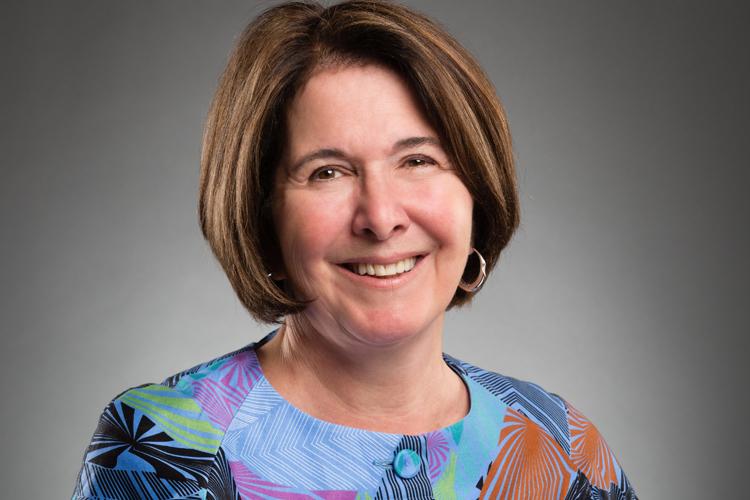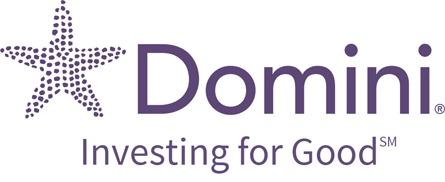The Next 25 Years – Big Picture Thinking by Amy Domini, CFA
The Next 25 Years – Big Picture Thinking
New article by SRI pioneer Amy Domini, founder, Domini Impact Investments
Responsible investing momentum is strong. For me, and for many of my generation, the future is clear: we are well on our way towards the installation of a vitally important system-level force for good, one that will protect future generations, indeed the planet itself. We have laid the groundwork for a financial system which functions globally to protect people and the planet. It is the realization of a misty dream for me. My purpose in advocating what I called ethical investing, going back nearly 40 years now, was to build a large enough investor presence that demanded a clean and dignified future for all — that such a future would be guaranteed.
We know that universal human dignity and ecological sustainability are not guaranteed. We have recently seen this, during the holocausts brought about by Nazis killing 12 million, the Cultural Revolution killing over 40 million, Stalin’s various gulags and purges killing 12 million, King Leopold II’s rape of the Congo killing 10 million, and so on through the centuries. And it isn’t only disregard for people. In 1985 we discovered a vortex of plastic trash in the Pacific. Yet we did nothing and that vortex is now somewhere between the size of Texas and the United States. In 1896 Svante Arrhenius wrote that burning coal was adding CO2 to the atmosphere and thereby raising the planet’s temperature; we did nothing. We know that God Almighty has not stepped in to prevent such things. We know that a single nation or even a coalition of nations cannot do so. Some sort of planet-wide, pre-existing, powerful and coordinated entity must be found, and must be convinced, to assert sanity. Finance is such an entity, and finance is increasingly populated by investors who give a damn.
“We must continue to stand together to demand that the search for monetary profits not come at the detriment of universal human dignity nor the undermining of ecological sustainability.”
The tide has turned; investors who care about the impact of business-as-usual on the well-being of others now number over 26 percent of global assets under management. These investors use at least one tool in the responsible investor’s toolbox, and in Europe and Australia/New Zealand, over half of funds are so managed. Additionally, one key component to slow investor growth in the adoption of a 100 percent responsibly managed portfolio has been lack of product in key allocation strategies. This is a rapidly fading problem. We now see new products produced at a dizzying rate. Long-short strategies, forest portfolios, hedge funds, private equity – in short we now see plenty of product to build the fully committed portfolio. Soon the partially committed investor will be fully engaged, and the impact will be exponential.
Review the tools in the responsible investor’s toolbox, and it becomes obvious how much impact the field has already had and how much more it will accomplish once sheer numbers gradually integrate their values into the global financial system. First, and probably most undervalued, we apply standards to what we purchase. To understand the impact, consider voting. Whether you vote or not has no impact on most election results. When 50 percent of us vote for companies with corporate responsibility values embedded into their very DNA, markets respond, disclosure increases, stakeholder partnerships become routine and yes, investors feel good.
If you believe that the global financial system has any impact at all on people and the planet, there is no better way to positively affect that dynamic than by applying standards. I began by saying that the application of standards is probably least undervalued. However, the on-going superior performance of what was launched as the Domini 400 Social Index and is now the MSCI KLD 400 Social Index has reduced the risk that standard-setting is abandoned. Within the field we understand why the outperformance: the application of stakeholder standards highlights the quality of management teams and reduces the number of companies run by behind-the-curve individuals.
Our second tool is direct engagement with corporations, governments, NGOs and the public to support and protect programs and policies that fit into our twin goals: universal human dignity and ecological sustainability. Our primary successes come through shareholder dialogue. Shareholders are uniquely capable of bringing non-profit voices into communication with management in an effort to make things better. It may seem like a small thing to label pesticide soaked plants at Home Depot or to gain assurance of better sourcing practices at The Gap, but when you stitch together the quilt of such initiatives spanning the past 35 years or so, with the founding of Interfaith Center on Corporate Responsibility, the core premise of using finance to build a better future is clearly working successfully, one campaign at a time.
Our third tool is direct support for under-capitalized efforts that raise a population or a technology or a premise to the point of being conventionally capitalized. American-based responsible investors have focused their efforts primarily on community development financial institutions, viewing venture capital into new technologies as a part of the first (apply standards) category. However as Europe and the rest of the world used cooperatively based energy or fair trade vehicles more, we have followed suit. Our third leg is now expanded but remains true to its core value of addressing capital vacuums in order to improve lives and extend planetary health.
Read Amy's complete article here - http://greenmoneyjournal.com/next-25-years-big-picture-thinking



